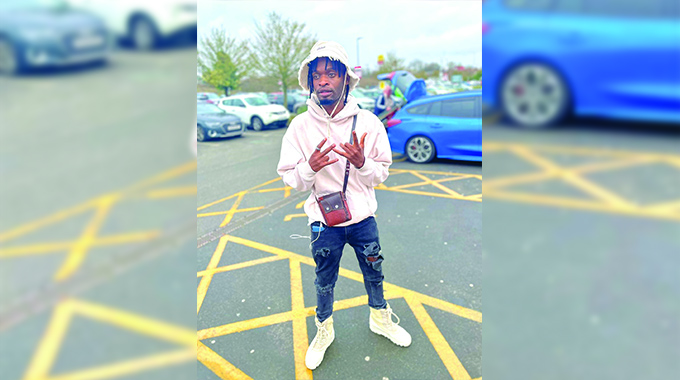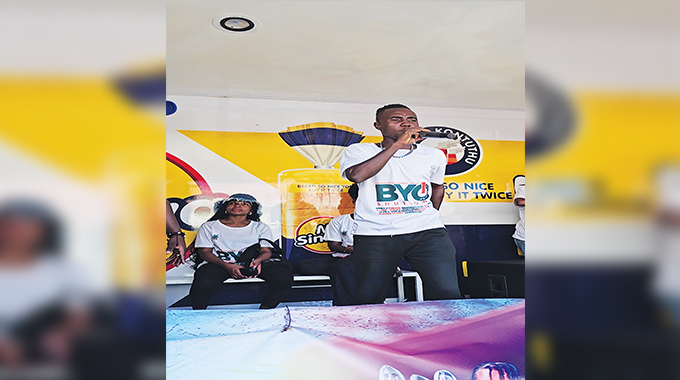This is how music spiced my life: Part 2
MY journey in music has in a way been a beacon in my life. Music was and still is in my DNA having come from musical parents. Our late father was nicknamed “the Jazzman” for his love of that genre.
My mother was in the church choir, and eventually ran her own record store which is diametrically opposed to pursuing a music career. Like what all those pop stars eventually did.
Our father, an accomplished businessman in his own right, wanted our mother to have a feel of running a business. To him, it was good training ground, not knowing that he was nurturing the seeds in me. I explained how, as I grew up, music was a significant part of my life via my uncles, friends and schoolmates.
As Zimbabwe became independent, reggae music was both spiritual and inspirational when I entered the University of Zimbabwe. While there, my early membership of the Society of African Studies (SAS) sunk the roots deeper.
Personalities that played an important role were Norman Khumalo, whom I had met at Founders High School and christened me Junjo after the late Henry “Junjo” Lawes, a legendary Jamaican producer.
He received me at the UZ as a big brother and introduced me to the culture at Zimbabwe’s only university at that time. Titus Moetsabi, Nzwanayi Max Pawandiwa, Spencer Mqabuko Dube and Thomas Deve were the others who welcomed me to the radical Pan Africanist brotherhood at SAS.
I used my artistic skills to telling effect when designing T-shirts with African images and slogans and organising Africa Day, Pro ANC or PAC gatherings and exhibitions that celebrated anything that brandished an AK47. We wore radicalism as one would red underwear.
Reggae was what brought us together (in addition to some banned substances) and soon artistes from Jamaica were making a beeline into the country. So, it was never in doubt that we would attend concerts featuring Dennis Brown, Gregory Isaacs, UB40, Culture, I Jah Man, Eddie Fitzroy and a host of other artistes.
By some stroke of fate, I also found myself working at one of Bulawayo’s biggest music stores, aptly named “Music”, during my December vacations. I am not really sure how I got that job. The feisty Italian owner, Lena Paleari, created an opportunity for me to rediscover other genres, namely funk, soul, hip-hop and disco.
It also made it possible for me to relate to customer’s varied tastes. I was also able to grow my diverse music collection at discounted rates with some freebies thrown in as incentives. My collection ballooned to an unbelievable 50 albums during this time.
My appreciation of the Soul Brothers grew during this period. Everyone from Matabeleland loved them to bits. Some of my generation still do. The shebeen circuit thrived on their unique sound with lyrics people could relate to. The strains of Bazobuya made some of the most memorable of Christmas holidays.
My enduring friendship with two friends and former Founders High mates, Lloyd Ncube and Freedom “Fritz” Dube re-directed my music taste. After having stuck to the reggae and dub-wise route, we branched off into South African Afro Pop of Brenda Fassie, Yvonne Chaka Chaka and Chicco that featured the fast paced pantsula dancing fad of the late 80s.
Lloyd, who had joined the railways as an apprentice, had his finger on the pulse of the music scene through his connections in South Africa. In addition to our roving expeditions to izipoti zabo Jomo, Mpofu Special laboMaTshuma, abomalayitsha kept us abreast with the beat of the time.
When I began teaching soon after varsity, the Afro-Jazz of Sankomota, Ray Phiri and Stimela, Hugh Masekela laboDon Laka entered the scene. It was like a hankering to my late father’s traditional jazz era, yet, with a modern twist. This development was not significant until much later when I got into part time broadcasting, almost by accident.
Fast forward to 1992 when I met Tula Dhlamini, television producer at the ZTV’s Montrose Studios who nudged me into a career that I only got to appreciate when I left teaching. For the best of the 90s I took “moonlighting” as a television presenter as a hobby. But Dhlamini lit a flame in me that was very much nascent until I went to Sweden in 1995.
It was a fire of a nascent creative whose skills in caricature and writing had been more or less supressed by the demand to please my father who wanted me to join him in his business.
Broadcasting came naturally, Tula playing the male midwife to coax it out of me. Montrose Studios was a backwater to the corporation, but had the most creative producers of the time. Edgar Nyarambi, Dumi “The Longest” Ncube, Rita Hundson, in addition to Tula were the most prolific.
Radio had the likes of Sam Mkhithika and Sipho Dube who massaged my detour into that aspect of broadcasting when my weekly programme hit a dead end on my return from overseas. It was Radio One’s Patutshedzo Manala in Harare that accepted me as a co-presenter for the controversial live programme, Spotlight.
None of all these programmes had anything to do with music. That side of my broadcasting eventually arrived when I resigned from teaching almost at the turn of the century and joined the ZBC as a full-time producer-announcer on Radio One.
Next week, I put my music where my mouth is by producing and presenting my first inspired music programme.









Comments